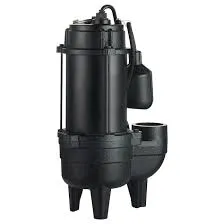Portuguese
- Afrikaans
- Albanian
- Amharic
- Arabic
- Armenian
- Azerbaijani
- Basque
- Belarusian
- Bengali
- Bosnian
- Bulgarian
- Catalan
- Cebuano
- Corsican
- Croatian
- Czech
- Danish
- Dutch
- English
- Esperanto
- Estonian
- Finnish
- French
- Frisian
- Galician
- Georgian
- German
- Greek
- Gujarati
- Haitian Creole
- hausa
- hawaiian
- Hebrew
- Hindi
- Miao
- Hungarian
- Icelandic
- igbo
- Indonesian
- irish
- Italian
- Japanese
- Javanese
- Kannada
- kazakh
- Khmer
- Rwandese
- Korean
- Kurdish
- Kyrgyz
- Lao
- Latin
- Latvian
- Lithuanian
- Luxembourgish
- Macedonian
- Malgashi
- Malay
- Malayalam
- Maltese
- Maori
- Marathi
- Mongolian
- Myanmar
- Nepali
- Norwegian
- Norwegian
- Occitan
- Pashto
- Persian
- Polish
- Portuguese
- Punjabi
- Romanian
- Russian
- Samoan
- Scottish Gaelic
- Serbian
- Sesotho
- Shona
- Sindhi
- Sinhala
- Slovak
- Slovenian
- Somali
- Spanish
- Sundanese
- Swahili
- Swedish
- Tagalog
- Tajik
- Tamil
- Tatar
- Telugu
- Thai
- Turkish
- Turkmen
- Ukrainian
- Urdu
- Uighur
- Uzbek
- Vietnamese
- Welsh
- Bantu
- Yiddish
- Yoruba
- Zulu
Telephone: +86 13120555503
Email: frank@cypump.com
Jul . 27, 2024 11:43 Back to list
Exploring the Various Applications and Benefits of Slurry Pumps in Different Industries
Understanding the Uses of Slurry Pumps
Slurry pumps are specialized equipment designed to handle the transportation of slurries, which are mixtures of solids and liquids. These pumps play a vital role in various industries due to their ability to efficiently move abrasive and viscous materials that other types of pumps cannot handle. This article explores the key uses of slurry pumps and their significance in different applications.
Mining and Mineral Processing
One of the primary applications of slurry pumps is in the mining and mineral processing industries. Mining operations often involve the extraction of ores from the earth, which generates a significant amount of slurry composed of water, minerals, and waste material. Slurry pumps are used to transport this mixture through the various stages of processing. They are instrumental in transporting tailings to storage facilities, a process crucial for managing environmental impact. The robust design of slurry pumps allows them to handle abrasive materials, ensuring long operational life even in harsh conditions.
Construction Industry
In the construction sector, slurry pumps are extensively utilized for the movement of cement, sand, and other construction materials. When mixed with water, these materials form a slurry that needs to be conveyed to various parts of construction sites. Slurry pumps are ideal for this application as they can handle high solids concentration and provide consistent flow rates. Whether it's for foundation work or road construction, slurry pumps facilitate the efficient transfer of materials, reducing labor costs and improving project timelines.
Dredging Operations
slurry pump uses

Dredging involves the removal of sediment and debris from the bottom of lakes, rivers, and other bodies of water. Slurry pumps are essential for dredging applications due to their ability to handle mixtures of water and sediment. They are used to transport the dredged material to processing sites or to disposal areas. The effectiveness of slurry pumps in dredging applications ensures the maintenance of navigable waterways, flood control, and the rehabilitation of aquatic habitats.
Waste Management and Environmental Applications
Slurry pumps are also employed in environmental applications, particularly in the treatment of wastewater and sludge. Wastewater treatment plants utilize slurry pumps to transfer sludge, which contains a mixture of water and solids, for further processing and disposal. These pumps ensure the effective mobilization of sludge, facilitating the treatment process and helping to meet environmental regulations. Additionally, slurry pumps play a role in the mining of tailings for reclamation projects, thus contributing to sustainable waste management practices.
Pulp and Paper Industry
The pulp and paper industry requires the movement of slurries containing wood fibers, water, and various chemicals throughout the production process. Slurry pumps are crucial here for transporting the pulp from the pulping process to the bleaching and washing stages. Their ability to handle thick mixtures without clogging makes them an invaluable asset in this industry. Furthermore, the efficiency of slurry pumps helps reduce energy consumption and operational costs.
Conclusion
Slurry pumps are versatile and integral components in many industrial processes. Their ability to handle challenging mixtures makes them indispensable across various sectors, including mining, construction, dredging, waste management, and pulp and paper production. As industries continue to modernize and focus on efficiency and sustainability, the role of slurry pumps will undoubtedly expand, paving the way for innovations in material transport and processing. Understanding the diverse uses of slurry pumps is crucial for professionals in any industry that deals with solid-liquid mixtures, ensuring optimal equipment selection and operational efficiency.
-
Durable & Efficient Submersible Mixed Flow Propeller Pumps Quotes
NewsApr.29,2025
-
BPA-Free Sand Gravel Pump for Aquariums & Industrial Use Terapump
NewsApr.29,2025
-
High-Efficiency Big Capacity Double Suction Pumps Bulk Supply
NewsApr.28,2025
-
High-Performance Vapor Honing Slurry Pumps Durable & Efficient Solutions
NewsApr.28,2025
-
OEM Slurry Pump Engineering Factory Custom Solutions & Durable Pumps
NewsApr.28,2025
-
1HP Sewage Submersible Pump Durable Vertical & WQ/QW Models Supplier
NewsApr.28,2025










